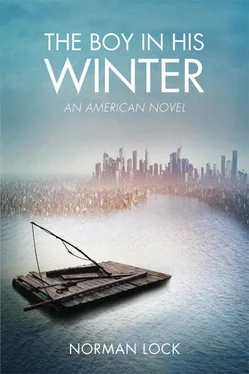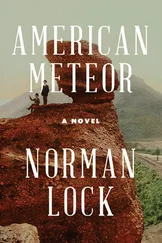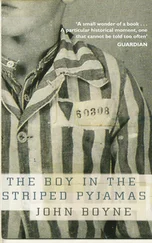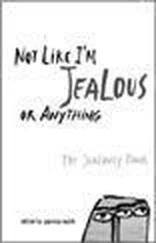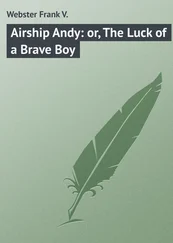What year was it?
Nineteen hundred and three. April. The sixteenth day of April, in the year 1903. What day could have been more auspicious? The beginning of spring, of new life, the dawn of a new century. A new age. Charmed! And I supposed that the enchanted life Jim and I had on the raft was joined by a benevolent hand to the place where Tom and I met for the last time. I sensed (a raw boy could not have articulated it) that I stood at the convergence of two currents, two electrified rails — two “mystic chords of memory,” as Mr. Lincoln said — and the rare, scarcely possible occasion of their meeting would protect Jim and me. I nearly called to Jim in my mind, with the intention of urging him telepathically to join me in a send-off Tom missed by too promptly dying. I felt he was owed an incomparable escapade, a grand bust-up, a rambunctious carouse. I wanted to run outside, into the streets of Baton Rouge, and commit high jinks and devilry in honor of our friendship. I was young, remember. My imagination was of a heroic cast and did not yet encompass low boozing and sex. I went through Tom’s pockets but discovered nothing except an ancient letter from Becky Thatcher, a yellowed and brittle greeting from Jeff Davis, and some silver money — none of which had any value for me. (We had no use for money in those days. God Almighty, I’d whistle a different tune once I was off the river for good and understood that it is the universal balm and nothing whatsoever can be done without it!) I arranged Tom’s hands as I had seen people do in Hannibal and pulled the sheet over his face. Then I snuffed out the candle, closed the door, tiptoed down three flights of stairs, and stepped out into the street with a sense of ecstatic relief that I had the power in me to escape the gravity of the deathbed. I was already forgetting Tom — so dismal is the idea of oblivion, so strong the attraction of life, even for someone like me who has kept his distance from it.
Darkness reigned, but not oppressively. The stars seemed hospitable fires in the April night, the moon smiled like a simpleton, and people milled noisily in streets made cheerful by electric light. I walked slowly toward the river, reluctant to enter the blacked-out stage of our little raft. I was sick to death of loneliness — of the absurdity of our journey. I felt like Hamlet when he was delivering his “To be, or not to be” soliloquy, which I’d heard the Duke rehearse years and years before. I cursed myself for a fool because I hadn’t sense enough to turn back when I could. I was homesick for dry land and an ordinary life where a boy can be counted on to grow up and die, which is the natural way of things. Maybe I was feeling no more than the restlessness of youth, which would will itself into adult life if it were able. Whatever the cause, I felt discouraged and forlorn. I put off returning to the raft awhile; I went to find myself some cheerful noise and light and people, no matter that I was already tending toward misanthropy. I clutched Wells’s book for courage, while I walked streets made dangerous by my friend’s death.
What else?
I rode a trolley up and down the bluffs, exhilarated by the luxury of horseless travel inside a conveyance illuminated by the same electric light that made the place a fairy town. I had no money, as I said; but I was used to getting inside circuses, magic-lantern shows, lectures on the pygmies, and other public entertainments without a nickel to my name.
On one street, people were jostling at the door of a building that had been converted from a grocer’s store into a nickelodeon. I had no idea what a nickelodeon might be, but I was attracted by the bustle and laughter, which defeated solemnity and, with it, death. I slipped inside, as though I had no more substance than a shadow. Maybe I was one; maybe I could’ve strolled, brazen and unseen, through the streets, sat inside the trolley car while it lurched uphill and down again, and walked into the nickelodeon without taking pains to make myself inconspicuous. Maybe on that night in Baton Rouge, I was invisible to everyone but Tom, whose eyes were fixed on ghosts. In my life, I’ve often had the sensation that I was unnoticed to an unnatural degree; that I made no impression on others’ optic or auditory nerves. Then in sudden terror, I’d act in an outrageous manner to make myself apparent. I was like a clean windowpane, unregarded until you accidentally shatter it.
Death had no dominion over me once the moving picture had begun. It routed the darkness, overthrew the gloom of melancholy. It astonished me as nothing before or since has done. A Trip to the Moon. The spaceship of the astronomers, their landing on the moon and battle with the Selenites, their escape back to earth, the rocket’s sinking to the bottom of the ocean among strange yet familiar fish. . The people who saw it with me that night were struck dumb with wonder. How much more must a boy born three-quarters of a century earlier have been? I never forgot it. A Trip to the Moon —by Georges Méliès; I suddenly remember the magician’s name! — and The Time Machine have been for me bulwarks against the night. Not an April night in 1903, but those at the terrible end of days — without light, without a kind voice, without courage. The moving picture stopped, but the illusion of fantastic life continued awhile. I walked to the river and boarded the raft because it could not have been otherwise for Huck Finn.
I TOLD JIM THAT TOM SAWYER WAS DEAD, and he was sorry only as someone can be who has lost, beyond all hope of rescue, a portion of the past — that is to say, a vital piece of himself. I told him about the moving picture, and the idea fascinated him. Like a Hindu, he believed in the deceptive appearance of things: that the world is a thin film of light and shadows. What might be on the other side of that film, Jim didn’t say. Maybe nothing. From what I’ve come to know of life, probably nothing.
“What should we do now, Jim?” I asked while he untied the line from a cypress tree leaning over the shallows.
My question was meaningless. We were in the current, which was a kind of intelligence: It knew the river’s course and purpose; and even if the atoms of water enfolding us had not yet flowed into the Gulf, the current itself already knew the river’s destination, though perhaps not its final end. We were held in the mind of the river, like a thought. The Mississippi knew what we would do next, notwithstanding the things that kept us busy: seamanly duties essential for life aboard a raft but, in the grand scheme, inconsequential. We were part of the Mississippi’s design and had been since our departure and, if Jim were right, long before that. Jim believed in destiny, which is why, I suppose, he did not bother to answer my question.
When the sun rose, we had covered only a few miles of water since Baton Rouge, but we had left 1903 far behind us. Time seemed more than ever to lengthen the farther we got from the river’s source. Years and years slowly passed—1910, 1911, 1912, 1913, 1914, ’15, ’16, ’17, ’18, 1919—and we felt only lethargy, a slight boredom, which we dispelled with songs, tall tales, fishing, and trailing our hands in the water, like two girls taking the sun. The sun was out more often than not, or so it seemed to me. Later, as I made the final passage alone, the sky would be black — or maybe it was only my own thoughts that were so.
Have you considered what this story might mean, or are you taking dictation with no other thought than the payment you’ll receive when I have in my hands the transcript of this — what would you call it? An American picaresque? A chimera spawned by an old man’s grotesque imagination? And will anyone care? I wish I had Jim here to sound! He understood things better than I: the river, life, our helplessness, our desire — the human wish to be elsewhere and not alone. To be un alone, unlike me with no company but a hired amanuensis. I spent a long time in the world but never possessed the knowledge of men and women. Not even with her. . Maybe the fault lay in my most unusual childhood. If it was unusual. Maybe at its heart — beyond the particulars of shape and circumstance — it was simply a childhood. If that is the truth, why have I failed myself? Unless we all do, but with the grace and courage not to grumble.
Читать дальше
